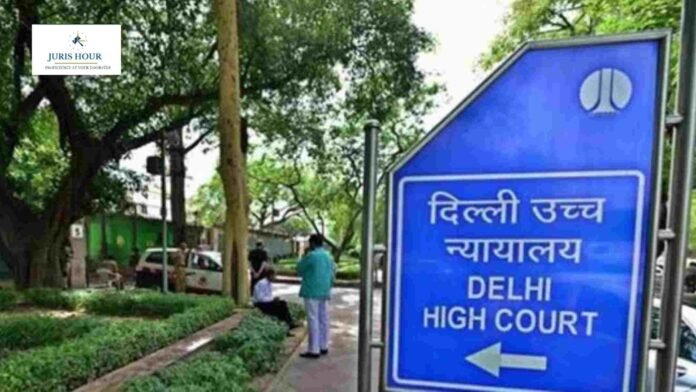The Delhi High Court has held that operating a lawyer’s chamber from a residential property does not amount to engaging in a commercial activity.
The bench of Justice Neena Bansal Krishna quashed a two-decade-old complaint filed by the New Delhi Municipal Council (NDMC) against Advocate B.K. Sood.
The NDMC had filed a complaint in 2004 against Advocate Sood, who occupied the lower ground floor of a residential property in Delhi. The civic body alleged that Sood had changed the sanctioned use of the premises by using it for “commercial purposes,” namely running a lawyer’s office, without the mandatory approval of the NDMC Chairperson.
According to the municipal body, the property’s basement was approved only for storage purposes. However, it claimed that Sood was using the area both for habitation and professional work, thereby violating the building use restrictions.
The court Jdisagreed with NDMC’s contention and observed that the activity of practicing law from an office or chamber cannot be categorized as a commercial venture.
“The activity of running an office by a lawyer is not a commercial activity,” the Court observed.
The judge referred to several Supreme Court and High Court precedents that have settled this question, including MP Electricity Board and Others v. Narayan and Another (2005), V. Sasidharan v. M/s Peter and Karunakar and Others(1984), and South Delhi Municipal Corporation v. B.N. Magon (2023). All these decisions have consistently held that the profession of law, by its very nature, is not commercial.
The Court further noted that the Master Development Plan (MDP) 2001 explicitly allowed for limited mixed use of residential premises — up to 25 per cent of the space — for non-nuisance, non-residential professional activities such as those of lawyers, doctors, and architects.
“The premises in question are admittedly residential premises, wherein part of it, i.e. the basement, was being used for professional activity, which is permitted under the MDP, 2001,” the Court stated.
Citing the Delhi Building Bye-Laws, 1983, the Court clarified that basements could be used for office or commercial purposes provided they met certain requirements relating to ventilation, ceiling height, flooring, and air-conditioning.
However, the NDMC’s inspection report, the Court noted, had failed to evaluate whether these conditions were met or violated. As a result, there was no substantive evidence to suggest any breach of the bye-laws or the Master Plan.
“It has to be necessarily concluded that there was no misuse of the premises by the petitioner, who had been running his office in terms of the MDP, 2001 read with the Delhi Building Bye-Laws, 1983,” the Court observed.
Justice Bansal Krishna criticized the continuation of the complaint, observing that it had remained pending for more than 22 years without any substantive basis.
“Considering the nature of unsubstantiated allegations and the fact that the case has been pending for more than 22 years, it would be an abuse of the process of law and would not serve any interest of justice if such complaint is permitted to continue,” the Court remarked.
The Court quashed the NDMC’s complaint in its entirety.
Case Details
Case Title: B. K. Sood Versus North Delhi Municipal Corporation
Case No.: CRL.M.C. 4881/2005, CRL.M.A. 9803/2005
Date: 08/10/2025
Counsel For Petitioner: A. S. Chandhiok, Sr. Advocate
Counsel For Respondent: Abhinav Bajaj, ASC
Read More: GSTR-9/9C for FY 2024-25 Enabled On GST portal From 12th October 2025 : GSTN

